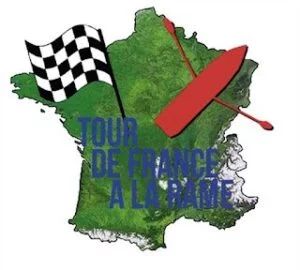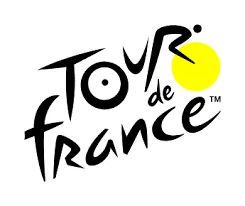Inaugurated in the year 1903, the Tour de France is celebrated as a mega-scale sports event garnering attention from audiences across the continents due to its physical challenges and dramatic character that brings with it the quintessential reminiscence of France. In the summer of 2023, the Paris Court of Appeal ruled on the trademark "Tour De France" and the registration of a later trademark known as "Tour De France La Rame".
Brief Facts
Registered in the year 1977 in trademark class 41 which makes a reference to the organisation of sporting events, the trademark "Tour De France" is owned by the French company La Société du Tour de France (STF) and licenced in favour of Amaury Sport Organisation (ASO). One Mr. Charles Hedrich and an association by the name Respectons la terre (RLT) having as its objective the promotion of adventure sports considered organising a new race of rowing the territory of France. They filed a semi-figurative trademark "Tour De France A La Rame" in classes 9, 12, 39 and 41 encompassing nautical devices and instruments, maritime locomotive devices, rentals of rowing boats, and sporting and cultural events respectively. STF and ASO considered the name "Tour De France A La Rame" to be misleading and an exploitation of the reputation of their brand name "Tour De France". Hedrich and RLT justified their use of the mark by claiming that the use of the expression "tour de France", even though registered as a trademark, cannot prevent the use of the expression in its common meaning to designate a route. STF and ASO sent a notice to Hedrich and RLT, calling upon them to cease using the well-known and reputed trademark "Tour De France". However, when the same did not restrain RLT from going ahead with its plans, STF and ASO approached the Paris Judicial Court, and thereafter the Paris Court of Appeal for relief.
Therefore, the question posed before the court was whether the registered trademark "Tour De France" and its underlying reputation had been infringed by the registration of trademark "Tour De France A La Rame".
Analysis
Article L 713-5 of the former French Intellectual Property Code states that the reproduction or imitation of a trademark enjoying a reputation for products or services not similar to those designated in the registration entail the civil liability of its author if it is likely to harm the owner of the trademark or constitute unjustified exploitation of the latter.
A trademark acquires a reputation gradually. The court relied on the judgement given by the Court of Justice of the European Union in the case of L'Oreal (C487/07, dated 18 June 2009) and observed that a renowned trademark is infringed when,
- Undue advantage is taken of the distinctive character or reputation of an earlier trademark;
- Harm is caused or would be caused to its distinctive character;
- Harm is caused to its reputation.
STF and ASO had relied on a definition in the Larousse dictionary, a decree that classified the tour de France as a major cycling race event, and reports concluding the popularity and awareness of tour de France among the audience to claim that the trademark was a well-established and reputed mark. However, the Court of Appeal only saw these as elements establishing the reputation of the trademark for the "organisation of sporting/cycling events" and not for other services mentioned in class 41. It further relied on a decision given by the Board of Appeal of the European Union Intellectual Property Office (EUIPO) to remark that the word mark "Tour De France" had acquired distinctive character only for the organisation of cycling events as mentioned in class 41 and not for other services.

Figure 1 Tour de France A La Rame

Figure 2 Tour De France
Further, the visual similarity between the "Tour De France A La Rame" and "Tour De France" is rather weak, as the former consists of a map of France in green colour on which the words "Tour De France A La Rame" are represented with a chequered flag and a red rowing boat on which the words "Tour De France A La Rame" are written and are unsatisfactorily legible. In contrast, "Tour De France" only consists of three words. Moreover, though the two trademarks had three similar words, they were phonetically dissimilar as the words "A La Rame" had different rhythms and sounds. The concepts behind the two trademarks revolved around the geography of France and a tour of the French territory, however, the contested trademark can be distinguished greatly in the sense that it pertains to the tour of France by rowing and the same is captured by the use of a rowing boat in its trademark. The registered trademark only refers to a tour of France by cycle. The target audience would overall have a note of the weak visual, phonetic and conceptual similarity between the two trademarks and not be confused or misled as the words "Tour De France" only represent the sporting activity concerned, that is, the tour of the French territory.
The expression tour de France is commonly used to designate a journey across France. Since the beginning of the 18th Century, the expression has been used to refer to the journey undertaken by Compagnons du Devoir artisans across France to complete their professional training. There are also variations of the tour de France cycling race in other countries like the Tour of Italy and the Tour of Spain. The whole expression "Tour De France A La Rame" constitutes a distinct meaning as compared to "Tour De France".
Conclusion
There is no link of similarity established between the reputed trademark "Tour De France" and the later trademark "Tour De France A La Rame" as the former has a reputation only for the organisation of cycling events. The expression "tour de France" itself is not very distinctive and the STF and ASO could not establish any infringement of their trademark's reputation. The protection attached to the brand "Tour De France" alone cannot prevent the use of the expression in its usual meaning.
The content of this article is intended to provide a general guide to the subject matter. Specialist advice should be sought about your specific circumstances.


